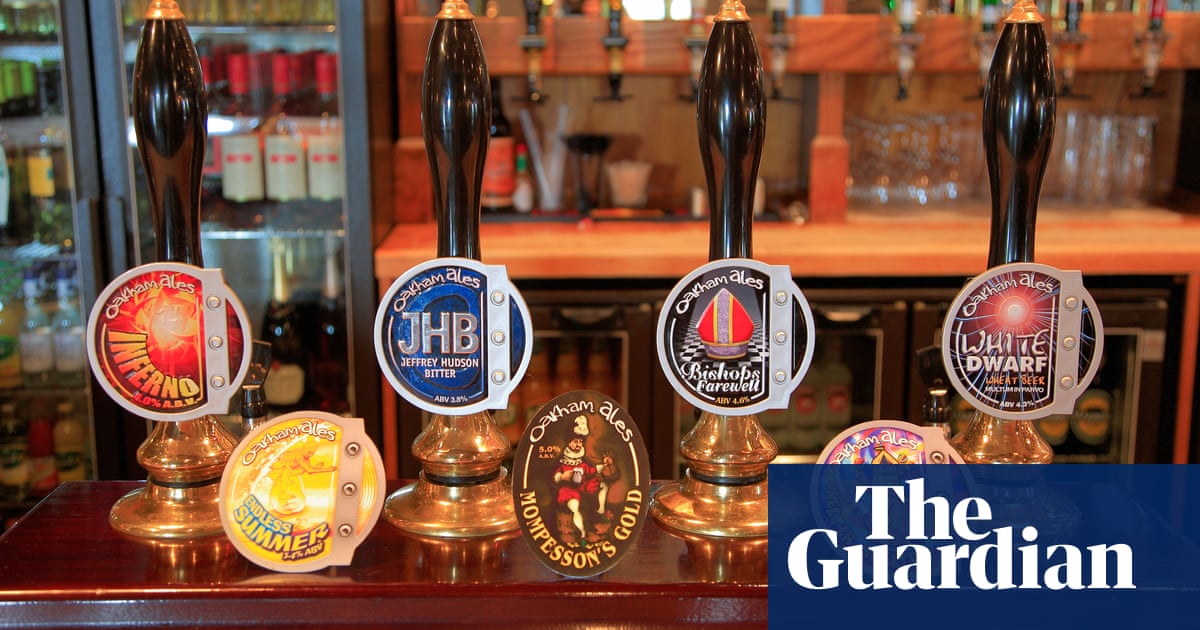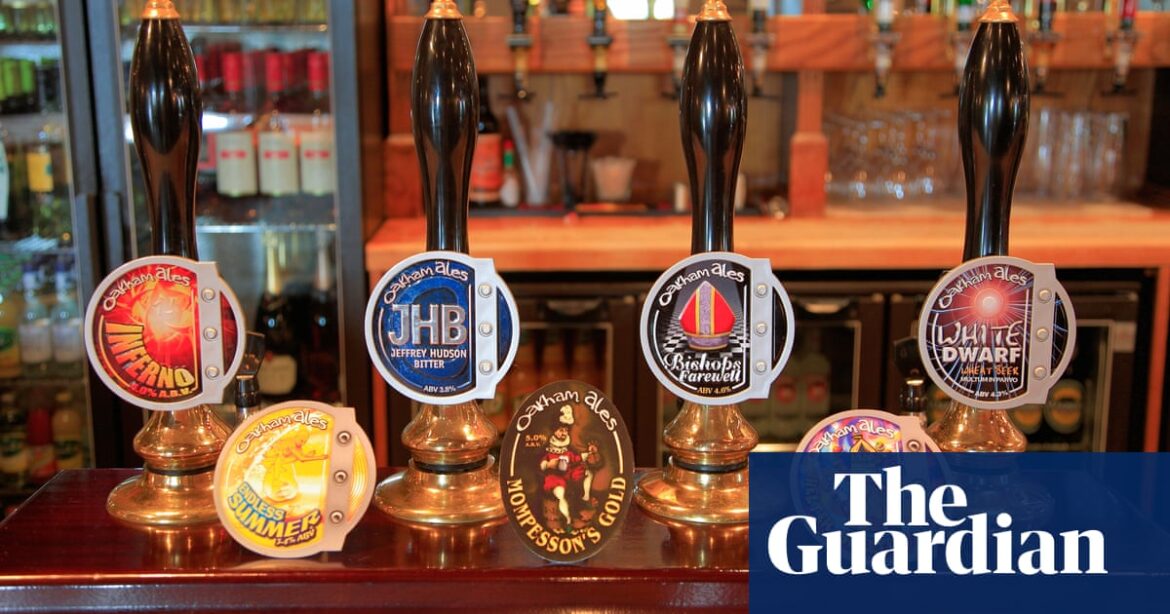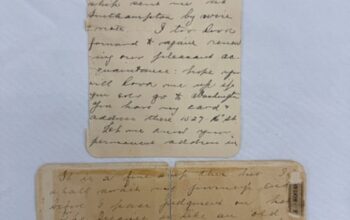
The government is considering making it easier for pubs to serve independent, local beers as the chancellor looks for ways to boost the sector.
Some pubs, known as tied pubs, only sell beer from the company that owns the pub, in exchange for lower rent. However, many publicans have for years grated against the “beer tie”, and drinkers also tell pollsters they want more choice of independent beers.
A Treasury source said Rachel Reeves was considering ways of “expanding access to pubs for the small brewers”, and could announce some form of consultation with the industry in her budget.
The source said the government wanted to give pubs “greater flexibility to buy beer from local small breweries to help bring in more footfall, expand choice for drinkers and support local breweries”.
Policies would still have to be put forward as legislation, but any move to increase indie beer sales by pubs would be welcomed by craft brewers, who are competing with an increasing number of global brands who are producing “craft” beers.
The Society of Independent Brewers and Associates (Siba), a lobby group, said brewers’ inability to sell to local producers was a major problem “across the sector, even in so called ‘free house’ pubs who are technically free to buy from whoever they choose”.
Andy Slee,Siba’s chief executive, said a government review of the problems facing indie brewers would be an “important first step to explore the right solution for the sector, ensuring all breweries have access to sell draught beer and that consumer demand is met”.
He added: “We know that there is lots of demand for locally produced independent draught beer alongside more global brands, but consumers often can’t enjoy them in their local pub because the supply is dominated by a few globally owned breweries.”
The lobby group also called for Reeves to increase draught beer duty relief to 20%, which would reduce the amount of tax due on pints poured from the tap. The government increased the relief from 5% to 9.2% for beer and cider in March 2023.
after newsletter promotion
The government is also expected to offer smaller producers of spirits such as scotch whisky and Irish poitín a small boost at the budget by cutting the price of accreditation. “Geographic indicators” generally cost producers £7,000 every two years, but the source said Reeves intended to cut that cost.
Source: theguardian.com



